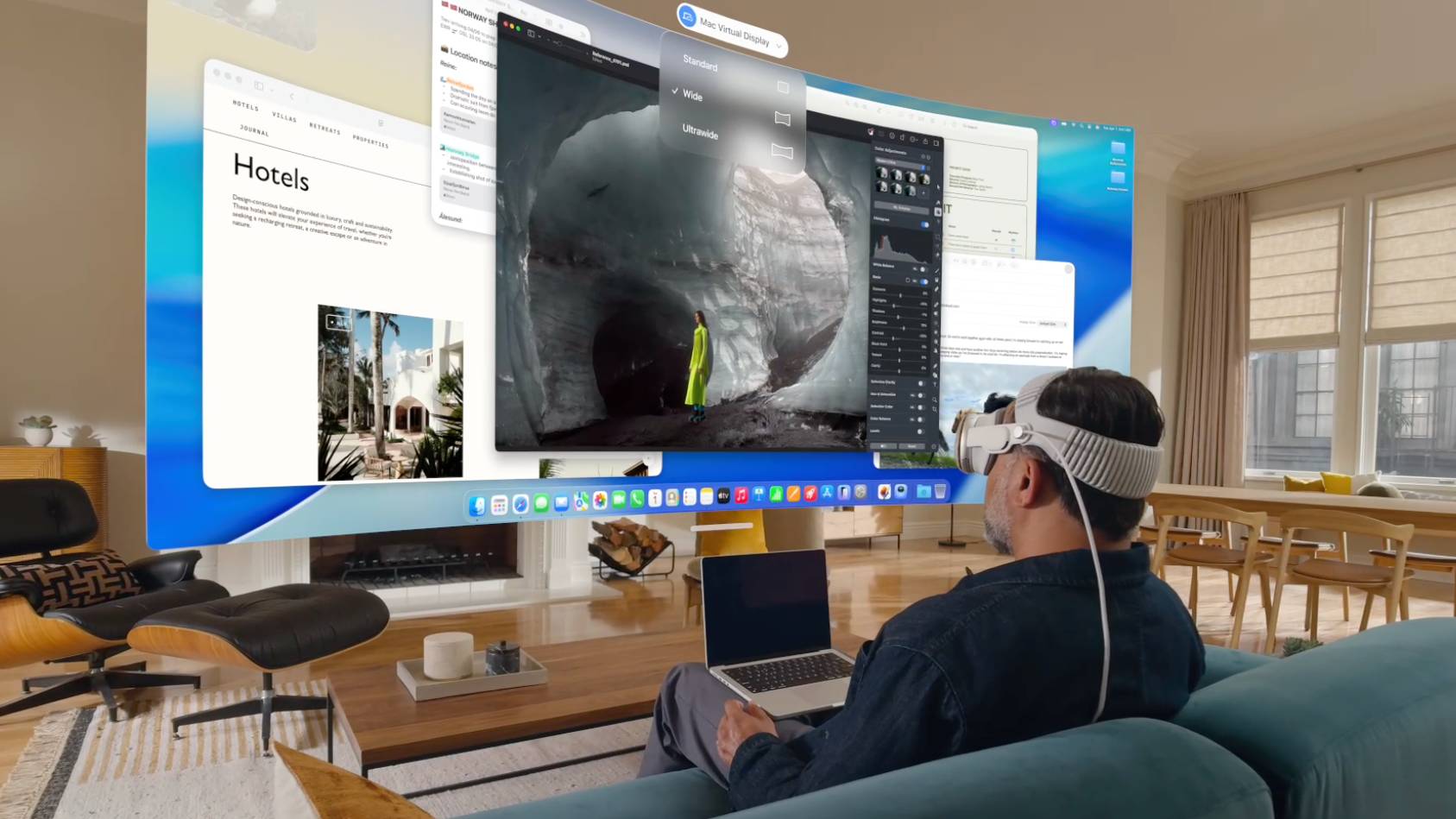This Router Uses Radar Detection to Boost Wi-Fi Speeds
The router, coming soon to a crowdfunding campaign, taps into unused spectrum in the 5-GHz band for less congestion and faster performance.
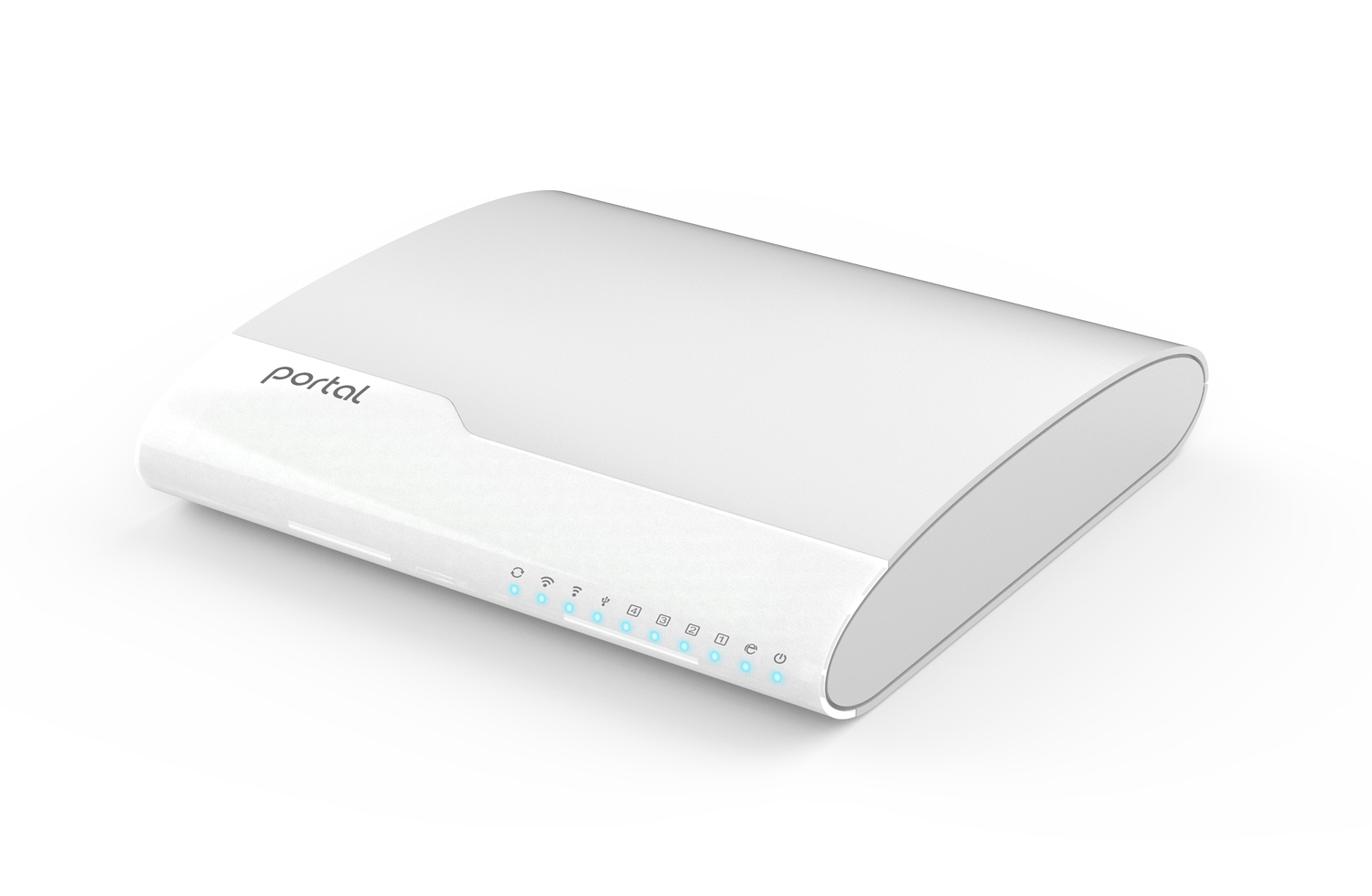
Here at Tom’s Guide our expert editors are committed to bringing you the best news, reviews and guides to help you stay informed and ahead of the curve!
You are now subscribed
Your newsletter sign-up was successful
Want to add more newsletters?

Daily (Mon-Sun)
Tom's Guide Daily
Sign up to get the latest updates on all of your favorite content! From cutting-edge tech news and the hottest streaming buzz to unbeatable deals on the best products and in-depth reviews, we’ve got you covered.

Weekly on Thursday
Tom's AI Guide
Be AI savvy with your weekly newsletter summing up all the biggest AI news you need to know. Plus, analysis from our AI editor and tips on how to use the latest AI tools!

Weekly on Friday
Tom's iGuide
Unlock the vast world of Apple news straight to your inbox. With coverage on everything from exciting product launches to essential software updates, this is your go-to source for the latest updates on all the best Apple content.

Weekly on Monday
Tom's Streaming Guide
Our weekly newsletter is expertly crafted to immerse you in the world of streaming. Stay updated on the latest releases and our top recommendations across your favorite streaming platforms.
Join the club
Get full access to premium articles, exclusive features and a growing list of member rewards.
Your home network is becoming more crowded than a freeway during rush hour. Ignition Design Labs thinks the way to end the traffic jam is to open up a few more lanes.
The company, which is made up of engineers who made their bones at places like Qualcomm and Broadcom, has come to CES 2016 to take the wraps off Portal, a router that can increase the available bandwidth on a network and dynamically pick the best channels for fast, reliable Wi-Fi performance. Pricing hadn't been set as of this writing, but Ignition is starting a Kickstarter campaign in February and envisions charging about $149.
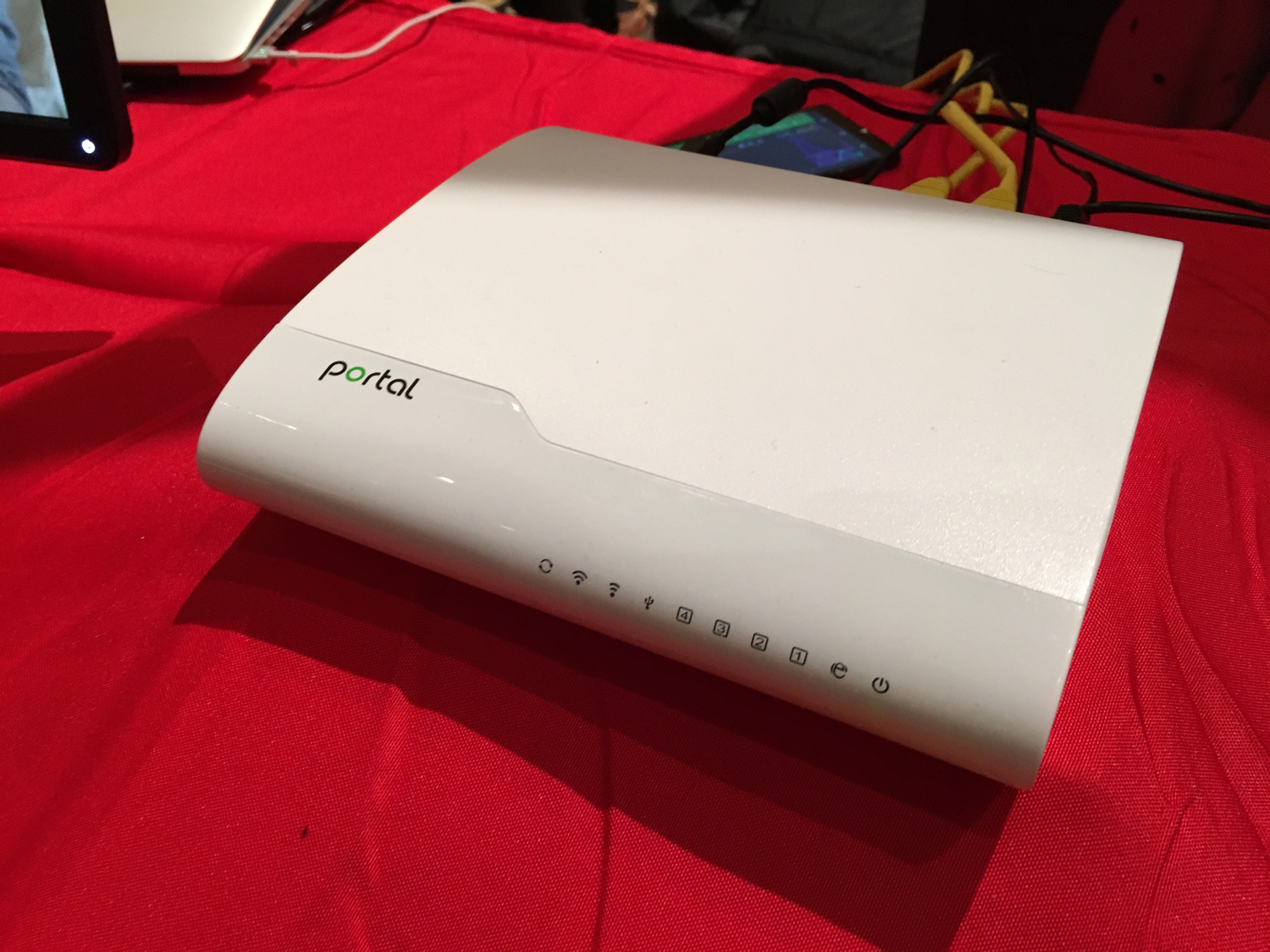
That would solve a problem facing a lot of home wireless networks: between streaming video, online gaming, connected devices and who knows how many phones, tablets and laptops, there's a lot of things clamoring for our router's attention.
Wi-Fi has "become a victim of its own success," Ignition president Terry Ngo told me when we met in a San Francisco apartment a few weeks ago to see how Portal could navigate an overcrowded wireless setting. "That crowdedness creates congestion, which impacts performance, speed and reliability."
MORE: Best Router - Get a Better Wi-Fi Signal at Home
The answer, Ngo and the other engineers at Ignition believe, is to exploit the radio spectrum in the 5-GHz band that most routers aren't even using. Ignition says that traffic on 802.11ac networks falls either in low-frequency or high-frequency lanes. But there's a big chunk of unused spectrum between those two channels that's going untapped.
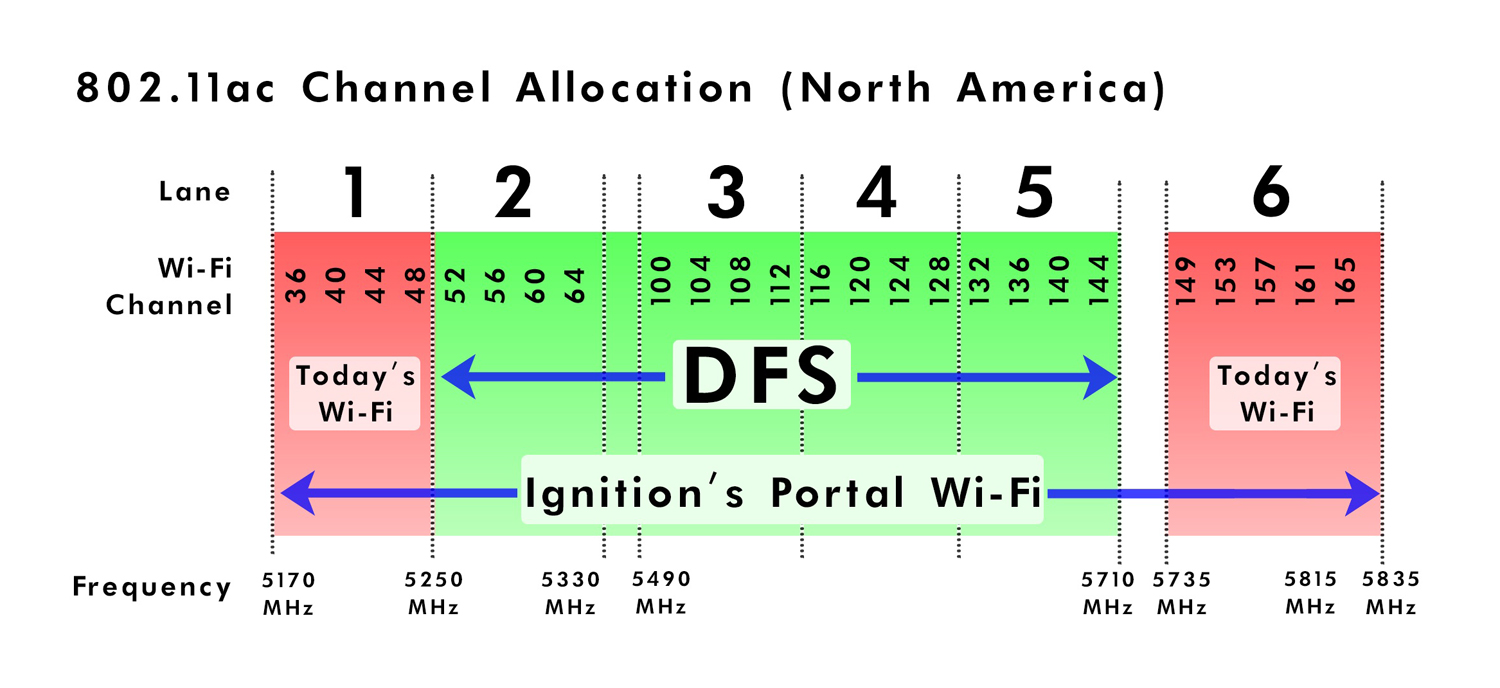
"Everyone's only using two lanes," says Ngo, returning to the analogy of a busy freeway. "There are four empty lanes. [With Portal], you're permitted to drive in the HOV lane."
Of course, there's a reason why a lot of that spectrum goes unused. It's called dynamic frequency selection (DFS), and it's used by things like emergency services, Doppler radar and other high-priority signals. You can still use that spectrum, but the FCC requires radar detection technology. If a radar signal is detected, devices have to abandon that channel and stay off for at least 30 minutes. It's a complex task that's generally limited to the kind of routers that only large-scale enterprises can afford.
Ignition says its radar detection technology is more robust and able to bump traffic over to other channels in the DFS spectrum when it picks up radar signals on one channel. Because Ignition's Portal router is capable of predictive channel changes, that means streams won't be disrupted even if you're watching a 4K movie. What's more, Ignition says its approach to radar detection is low-cost enough to add to consumer routers.
Ignition claims that Portal can boost available bandwidth by 250 percent while the router's ability to dynamically adjust Wi-Fi settings to use faster channels and avoid interference can increase speeds by 300 times. Certainly, in that San Francisco apartment surrounded by competing wireless signals, the Portal was able to meet whatever demands the Ignition team could throw at it, streaming a pair of 4k movies simultaneously while also delivering 543Mbps of throughput on top of that.
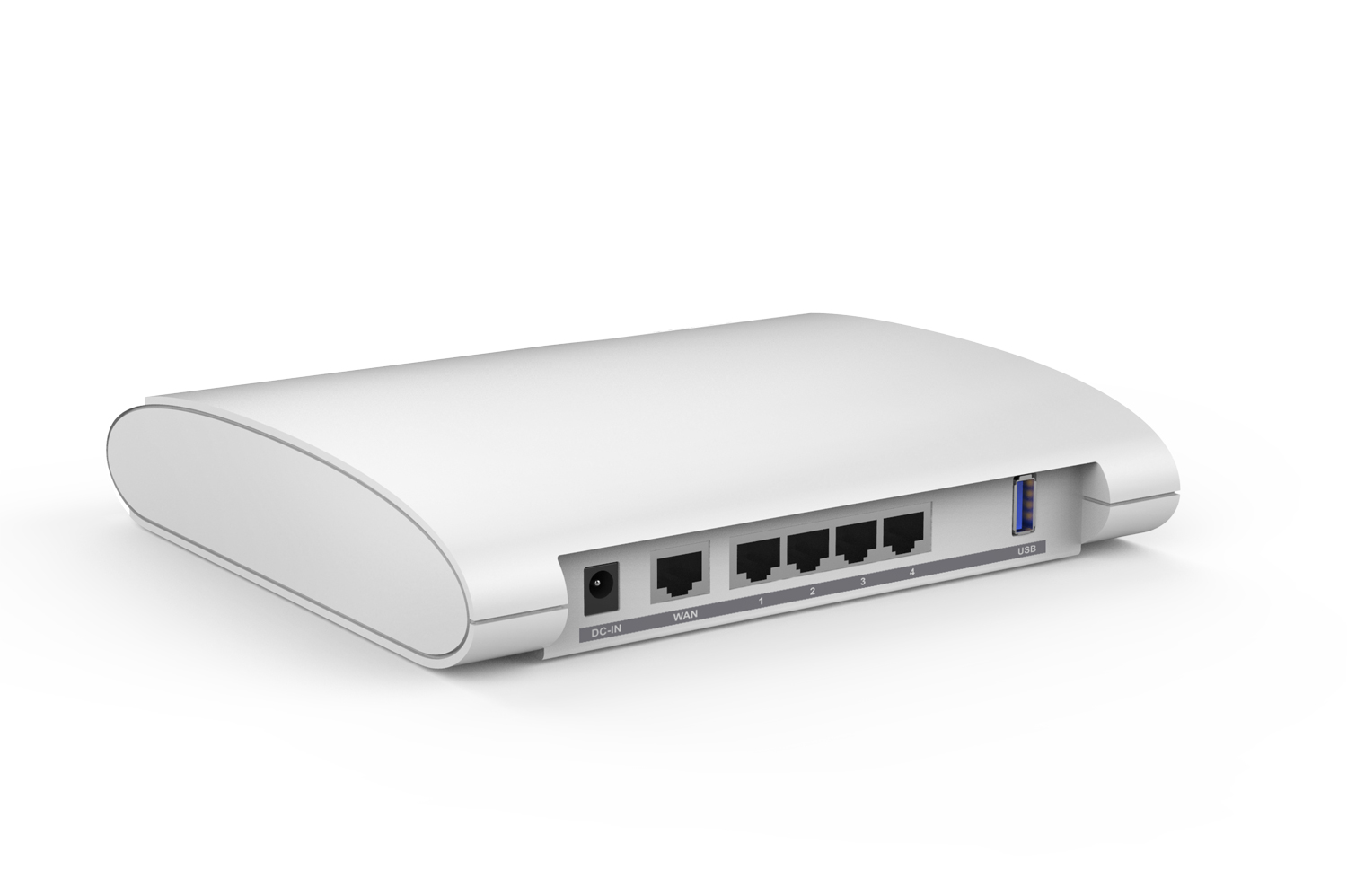
The differences were even more stark when we switched between the Portal and an off-the-shelf AC1900 router. An immersive video streaming to a Gear VR headset looked smooth and seamless over the Portal router but had noticeable stutters when delivered by the standard networking device. The Portal router let me stream an Xbox One game to a laptop; that same game was unplayable over the run-of-the-mill router.
There's hope yet for those off-the-shelf routers, though. Ignition executives equipped a standard router equipped with the company's spectrum boosting technology that was able to stream Netflix at full resolution much more quickly than it could without the added technological boost. In addition to producing its own router, Ignition thinks it can integrate its technologies into existing networking devices for improved performance.
To convince router makers that they should adopt that technology into their own products, Ignition plans to turn to crowdfunding. The company will launch a Kickstarter campaign in February aimed at lining up beta testers for the Portal router.
"We want consumers to try it and tell equipment makers what they think," he said.
- Best Wi-Fi Extender - Increase Your Wireless Range
- 5G Networking: The Definitive Guide
- Your Router's Security Stinks: Here's How to Fix It
Get instant access to breaking news, the hottest reviews, great deals and helpful tips.
Philip Michaels is a Managing Editor at Tom's Guide. He's been covering personal technology since 1999 and was in the building when Steve Jobs showed off the iPhone for the first time. He's been evaluating smartphones since that first iPhone debuted in 2007, and he's been following phone carriers and smartphone plans since 2015. He has strong opinions about Apple, the Oakland Athletics, old movies and proper butchery techniques. Follow him at @PhilipMichaels.
 Club Benefits
Club Benefits











